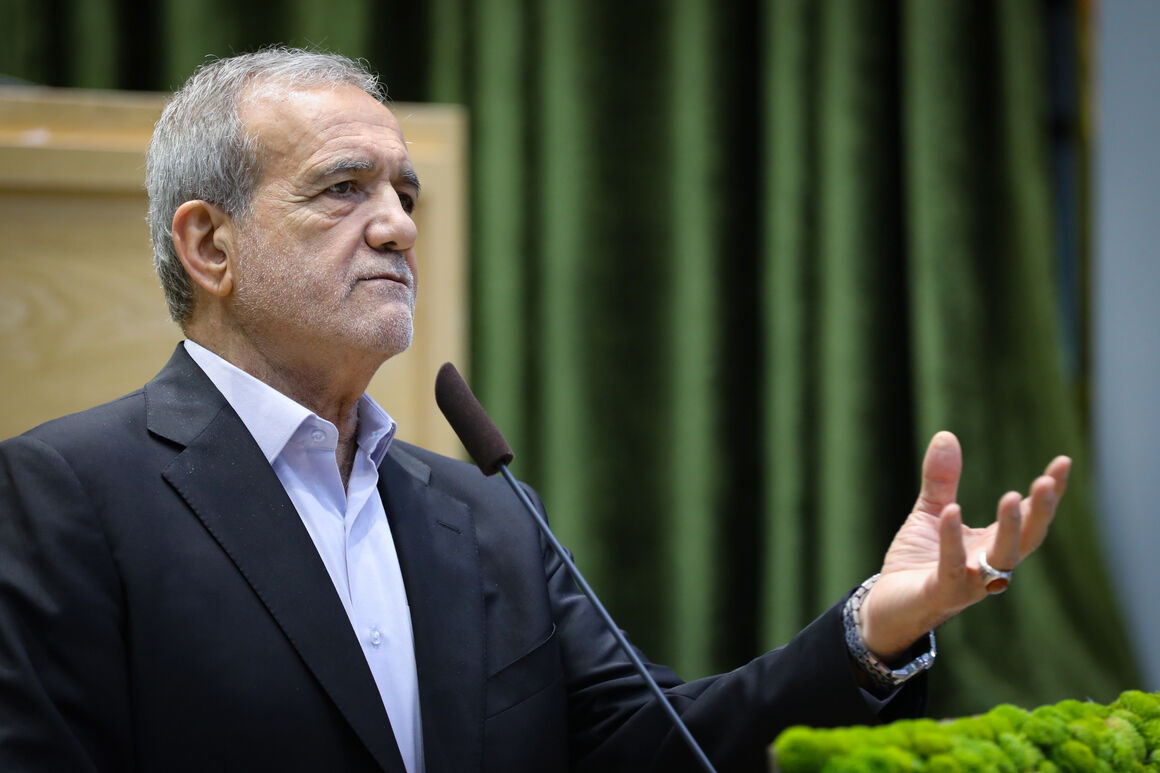Speaking Monday at the third session of the sixth Assembly of Experts, Pezeshkian noted the challenges his administration inherited upon taking office. “The government faced problems that, despite efforts to manage them, persist,” he said. “From the beginning, there were imbalances—for example, a budget deficit of nearly 780 trillion tomans that needed to be addressed.”
Referring to last winter’s critical fuel shortage, he added, “Fuel reserves were about 1.2 billion liters, while the actual need was estimated at 3.5 billion liters—a deficit of over 2 billion liters. In such conditions, we asked people to reduce household gas consumption to get through the winter.”
Energy consumption three times global average
The president warned that the country is on the brink of crisis in electricity, water, energy, fuel and other sectors. “I told the supreme leader that we must find solutions to address people’s livelihoods and these imbalances,” he said. “The government has launched a program to generate nearly 30,000 megawatts of solar power. Contracts have been signed for 15,000 megawatts, and we are advancing another 7,000 megawatts using domestic capacity.”
Pezeshkian highlighted the state of subsidies and energy consumption, saying, “Financial resources are scarce, yet our energy consumption is three times the global average. We import $4 billion worth of gasoline annually just to keep cars running. This is unsustainable—we must collaborate to reform it.”
Emphasizing the need to change consumption habits, he said, “This culture must shift. Mosques can play a key role here. Simply adjusting consumption patterns could resolve many electricity and gas issues. Such a small step could have a major impact.”
Why build petrochemical plants without infrastructure?
The president noted that last winter, when citizens were asked to lower home temperatures by just two degrees, they cooperated. “Now, if households and mosques optimize temperature control, significant results can be achieved,” he said.
If public cooperation continues, Pezeshkian said, freed-up energy resources could improve living standards. “Currently, about $150 billion is spent annually on hidden energy subsidies for gas, electricity, gasoline and diesel. If these were distributed at real prices, no one would remain in poverty.”
He pointed to the disparity between domestic and global diesel prices: “Globally, diesel costs about 70,000 tomans per liter, but here it’s sold for 300 to 400 tomans. This gap allows some to profit from quotas or smuggling without real economic activity. This must change.”
Addressing environmental concerns in development projects, Pezeshkian questioned, “What justifies building petrochemical plants in areas without gas infrastructure? Some only seek land-use changes without creating jobs. We must assess how many jobs these projects actually generate versus the gas and electricity subsidies they receive. For many, the cost to the government far outweighs public benefits.”


Your Comment